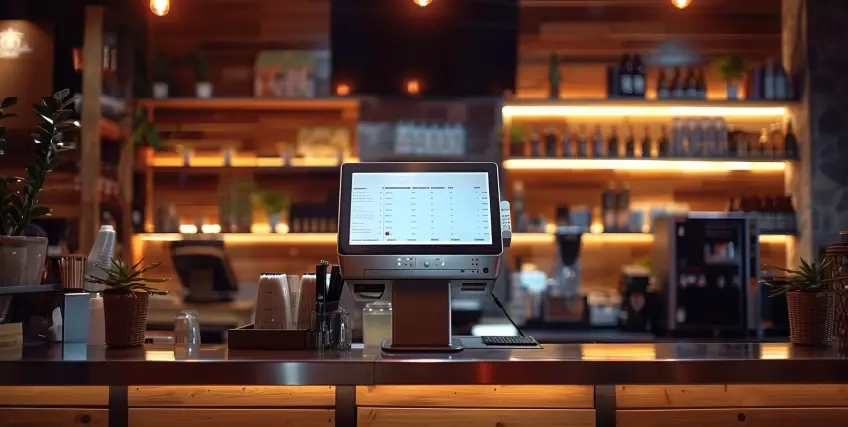Restaurant Business Loans for Franchises How to Secure the Right Funding
August 08, 2025 | Last Updated on: August 08, 2025

Opening or expanding a franchise restaurant is a popular way to enter the food service industry with the backing of an established brand. However, the costs associated with starting or scaling a franchise can be significant. This is where restaurant business loans come into play. Navigating the landscape of franchise financing can empower you to make informed decisions and secure the right funding to achieve lasting success.
This article will take you through topics like:
- What restaurant business loans are
- Types of funding available to franchises
- Steps to secure the best loan for your restaurant
- Tips for improving your chances of approval
- Common pitfalls to avoid
Let's dive into the necessary details of securing restaurant business loans for your franchise venture.
Understanding Restaurant Business Loans
Restaurant business loans are loan products tailored to the requirements of restaurant owners, franchisees included. The restaurant loans offer the capital requirement for:
- Location renovation or buildout
- Equipment buying
- Stocking inventory
- Marketing and grand opening costs
- Working capital for funding day-to-day activities
Securing the right restaurant business loan means obtaining capital on terms that your business model and growth plans support. Picking the best possible option provides stability for your franchise investment and enhances your prospects for long-term profitability and financial statements.
Why Franchises May Need Specialized Loans
Franchise ideas are different from independent restaurants in several significant ways. As a franchisee, you're meant to follow some brand rules and procedures, with plenty of expenses dictated by the franchisor. Restaurant business loans for franchises are therefore structured to accommodate:
- Franchise fees and royalties
- Design and equipment requirements imposed by the brand
- Compulsory training programs and technology systems
Recognition of these unique requirements is the first step in acquiring business loans for franchises that meet all of the commitments while supporting expansion and cash flow.
Types of Restaurant Business Loans for Franchises
When exploring your funding options for a new restaurant as a startup, you’ll encounter several types of restaurant business loans applicable to franchises:
SBA Loans
SBA loans are partially guaranteed by the U.S. Small Business Administration, making them less risky for lenders and potentially easier for business owners to get. The two most popular SBA programs that franchisees use are the SBA 7(a) and SBA CDC/504 loans.
- SBA 7(a) Loan: Most popular choice for the purchase of an existing franchise, opening a new facility, or working capital. It features large borrowing levels (up to $5 million), lengthy repayment terms (up to 10 years for working capital; up to 25 years for real estate), and relatively low rates.
- SBA CDC/504 Loan: Especially for equipment and real estate purchases, offering fixed-rate financing on a competitive basis for assets that assist in the expansion of the business and the creation of jobs.
Traditional bank loans
Traditional bank loans are conventional term loans extended by banks or credit unions. Traditional lenders are available for construction, real estate, working capital, or equipment loans, if you meet strict eligibility criteria.
These typically require an excellent credit history, strong financials, and an existing track record in restaurant operations or similar businesses. Loan amounts, terms, and interest rates vary by institution.
Equipment financing
Equipment financing allows you to purchase kitchen appliances, furniture, refrigeration, point-of-sale systems, or other necessary restaurant equipment. The equipment is collateral.
Lenders typically fund 80–100% of the equipment cost. Monthly payment terms usually equal the equipment's useful life.
Alternative lenders
Online lenders and fintech firms have become major sources of restaurant business loans thanks to the ease and speed of their application processes. They may come in the form of term loans, lines of credit, or merchant cash advances.
Funds are available quickly. Approval standards are often more relaxed regarding credit and business experience.
Franchise financing programs
Some franchisors have partnered with lenders or offered in-house financing options. These franchise financing loan programs are set up for new franchisees, and the process is simplified:
Pre-approval can be accelerated since the lender already knows the brand's business model. Terms can be more favorable because of the franchisor's backing.
Key Factors Lenders Consider for Restaurant Business Loans
When you are going for a restaurant business loan, lenders will typically look at:
- Your business and personal credit history
- How long have you been in business, and if you have prior experience operating a restaurant
- How solid and well-known the franchise brand is
- Business plan or franchise disclosure document (FDD)
- Collateral (e.g., equipment or property)
- Cash flow projections and financial projections
Having correct documentation and demonstrating that you are willing to comply with the franchise system significantly enhances your application.
Steps to Secure the Right Restaurant Business Loan
Take these vital steps to maximize your capacity to secure the ideal restaurant business loan for your franchise:
Assess your capital needs
Start by clearly determining how much funding you need by breaking down all expected costs. This includes franchise charges such as initial fees and ongoing royalties, buildout and renovation expenses to prepare your location, and the cost of essential equipment and technology. Additionally, factor in working capital to cover day-to-day operations and inventory to stock your business at launch.
Research loan options
Research the various restaurant business loans before you finalize one option according to your needs and requirements. Compare interest rates, repayment terms, and documentation requirements.
Check your creditworthiness
Check your personal and business credit scores. Preparing to enhance your credit or resolving any existing problems in advance increases your chances of approval and the terms of the loan.
Gather franchise documentation
You will be required to provide several key documents, including the Franchise Disclosure Document (FDD) and the franchise agreement, which outline the terms and conditions of the franchise relationship.
Additionally, evidence of training completion or franchise approval must be submitted to demonstrate readiness to operate under the brand. A comprehensive business plan with detailed financial projections is also essential to show your operational strategy and expected performance.
Apply to multiple lenders
Don't shop at a financial institution. You should look for various lenders and compare what they offer. You can compare several banks, online lenders, and maybe the franchisor's suggested financing partners.
Carefully review terms and conditions
When comparing financing alternatives, consider the terms of a loan that are most significant to you, including interest rates, fixed or variable, since they affect your monthly payments. Repayment periods need to coincide with your cash flow, so they won't be unmanageable. Consider any prepayment fees that may be levied for early loan payoffs, as well as other charges that might be included for loan origination, servicing, or late payments.
Choose the restaurant business loan that offers the most favorable terms for your planned franchise location.
How to Improve Your Loan Approval Chances
Finding a business loan to open up a restaurant may be competitive. Get ahead by:
- Demonstrating restaurant or management experience
- Having a solidly researched, facts-based business plan
- Providing collateral (e.g., property or heavy machinery)
- Scoring or going above the minimum credit score requirement
- Having sufficient capital to make a down payment on it
Getting to know lenders in advance (especially those with restaurant business loan expertise) can also work in your favor.
Common Mistakes to Avoid
Avoid these mistakes while seeking restaurant business loans for your franchise:
- Underestimating the capital required
- Being unaware of lender requirements
- Overestimating future cash flow or profitability
- Agreeing to loan terms that put your budget too tight
- Not having it reviewed by legal or financial advisors before signing
Proper preparation, along with realistic projections, eliminates much of the risk in the loan application process.
Alternative Funding Sources
In addition to the standard restaurant business loans, the following are alternatives franchisees may want to consider.
If you're willing to take on more personal risk, home equity loans or lines of credit can be a funding choice. You may also seek funding from partners or investors who share your vision. For specialty or community-based ideas, crowdfunding can be a successful means of raising money and gaining a loyal customer base. Vendor financing, like leasing equipment outright from suppliers, can lower initial costs. On top of that, although limited, there exist both public and private grants specifically for food businesses which are worth investigation.
Choose these only if you fully comprehend the effect on your ownership percentage and financial future.
Questions to Ask Before Committing
Before you settle on your restaurant business loan, inquire of prospective lenders:
- What is the cost of borrowing, including fees?
- Are there penalties for prepayment if I pay off the loan early?
- What's the approval and funding timeline?
- Is collateral needed, and how will that impact my other assets?
- Can the loan be structured to support growth, remodels, or expansion into additional locations?
Unambiguous responses to these types of questions assist you in choosing the most appropriate type and quantity of franchise financing to power your restaurant's opening and growth.
Staying Ahead with Proper Funding
Securing the right restaurant business loans gives your franchise the working capital to handle challenges, innovate, and grow.
To ride through low seasons, having the right levels of inventory and staff to manage costs yet remain ready for customer demand is crucial. Marketing and technology investments can bring in new customers and improve operations. Adding new menu items or services keeps the lineup fresh and interesting and brings customers back for more. When the time comes, expanding by additional units of franchises broadens the brand's reach and revenue possibilities.
A smart approach to leveraging restaurant business loans ensures you maintain autonomy and avoid overleveraging your finances.
Conclusion
Restaurant business loans are fundamental tools for aspiring and existing franchisees. With dozens of lenders and restaurant financing options available, understanding the unique needs of your restaurant and the lending market is vital. By researching loan types, preparing documentation, and working with experienced lenders, you boost your chances of securing funding on favorable terms.
Remember, careful planning, attention to lender requirements, and a data-driven business plan set your franchise up for lasting success. Whether you’re considering SBA loans, traditional banks, or franchise financing, stay diligent, ask the right questions, and take the time to find the best fit for your goals and get the right business loan to open a restaurant.
Through disciplined management of funds and strategic planning, your franchise can flourish, making the right choice in restaurant business loans a pivotal step in your entrepreneurial journey.
FAQs About Restaurant Business Loans
How hard is it to get a business loan for a restaurant?
Suppose you want to get a restaurant business loan. In that case, you should know that they are considered to be a high-risk loan by banks, which makes it a difficult choice for the borrowers while securing a traditional loan, for securing or buying an existing restaurant. Although these are alternative financing options, like SBA 7(a) loans, which are designed to help small businesses, including restaurants.
Can you get a loan to franchise a restaurant?
In some cases, franchisors can provide you restaurant funding directly with the parent company, but typically, they will partner with their preferred lender, who can administer the loans to their franchise. Franchisees can also look for a commercial loan with the bank that fits their needs.
How can a business loan be secured?
You can secure your business loans with the help of collateral-like property or a house. Borrowers usually have a solid credit profile. You will have to submit documents like income statements and business balance sheets for the past years of your business financing.
How easy is it to get a business loan for a franchise?
If you want to qualify for an SBA loan in the restaurant industry, lenders generally would require you to have at least two years in business, along with strong annual revenue and a decent credit score. You will also have to meet some general requirements of SBA loans.
Does the SBA fund franchises?
The most common SBA loan which is referred for franchise is 7(a) loan. SBA 504 loans is generally used for buying commercial real estate for your franchise. These loans also offer lending limits of $5 million, which is usually required for acquiring a franchise business.
Frequent searches leading to this page
Term Loans are made by Itria Ventures LLC or Cross River Bank, Member FDIC. This is not a deposit product. California residents: Itria Ventures LLC is licensed by the Department of Financial Protection and Innovation. Loans are made or arranged pursuant to California Financing Law License # 60DBO-35839




